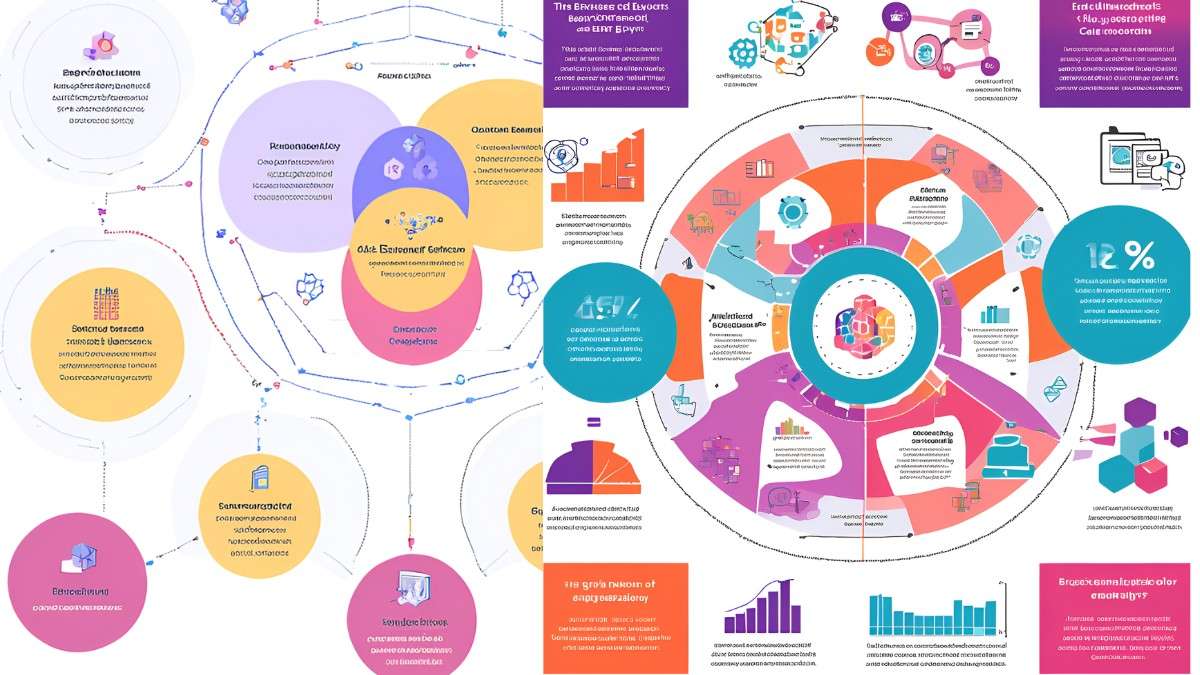Introduction
In today’s fast-paced business landscape, staying competitive requires more than just traditional Enterprise Resource Planning (ERP) systems. Companies need intelligent, data-driven solutions that streamline operations, enhance decision-making, and drive growth. Enter AI-driven ERP systems—the next evolution in business technology.
But what makes AI-powered ERP so revolutionary? How can it transform your business operations, reduce costs, and improve efficiency? And most importantly, how can you implement it successfully?
This comprehensive guide explores:
✅ How AI enhances ERP systems (automation, predictive analytics, intelligent decision-making)
✅ Key benefits (cost reduction, risk management, scalability, sustainability)
✅ Implementation challenges (data integration, change management, security)
✅ Real-world applications (supply chain optimization, customer experience, real-time analytics)
By the end, you’ll understand why AI-driven ERP is the future—and how your business can leverage it for unprecedented growth.
Understanding AI-Driven ERP Systems
Traditional ERP systems help manage core business processes like finance, HR, and supply chain. However, AI-driven ERP takes this further by integrating machine learning, natural language processing (NLP), and predictive analytics to deliver:
1. Enhanced Automation
AI automates repetitive tasks such as:
✔ Invoice processing
✔ Inventory management
✔ Customer service (via chatbots)
This reduces human error and frees up employees for higher-value tasks.
2. Predictive Analytics
AI analyzes historical data to forecast trends, such as:
✔ Future demand fluctuations
✔ Equipment maintenance needs
✔ Cash flow projections
This allows businesses to make proactive decisions rather than reactive ones.
3. Intelligent Decision-Making
AI-powered ERP provides real-time insights, helping leaders:
✔ Optimize pricing strategies
✔ Identify cost-saving opportunities
✔ Improve workforce productivity
With AI, businesses move from guesswork to data-driven precision.
AI-Driven ERP Systems: The Future of Business
1. Real-time Analytics
Traditional ERP systems provide reports, but AI delivers instant, actionable insights. For example:
- Retailers can adjust pricing dynamically based on demand.
- Manufacturers can detect production bottlenecks in real time.
2. Supply Chain Optimization
AI enhances supply chain management by:
✔ Predicting delays (weather, geopolitical factors)
✔ Optimizing inventory levels
✔ Identifying alternative suppliers
This ensures smoother operations and reduced costs.
3. Enhanced Customer Experience
AI-driven ERP personalizes customer interactions through:
✔ AI chatbots (24/7 support)
✔ Predictive recommendations (like Amazon’s “Customers also bought”)
✔ Sentiment analysis (to improve service)
This leads to higher customer satisfaction and retention.
The Multifaceted Benefits of AI-Driven ERP Systems

1. Cost Reduction
By automating workflows and optimizing resources, AI-driven ERP helps businesses:
✔ Cut operational costs by up to 30% (McKinsey)
✔ Reduce inventory waste
✔ Minimize manual labor expenses
2. Risk Management
AI identifies potential risks such as:
✔ Fraudulent transactions
✔ Supply chain disruptions
✔ Compliance violations
This enables proactive mitigation strategies.
3. Scalability
AI-driven ERP grows with your business, handling:
✔ Increased transaction volumes
✔ Multi-location operations
✔ New regulatory requirements
4. Sustainability
AI helps businesses:
✔ Optimize energy usage
✔ Reduce carbon footprint
✔ Improve waste management
This supports ESG (Environmental, Social, Governance) goals.
Implementing AI-Driven ERP Systems: Challenges and Considerations
While AI-driven ERP offers immense benefits, implementation comes with challenges:
1. Data Quality and Integration
✔ Ensure clean, structured data for AI to work effectively.
✔ Integrate legacy systems with new AI tools seamlessly.
2. Change Management
✔ Train employees to adapt to AI-enhanced workflows.
✔ Address resistance by highlighting long-term benefits.
3. Privacy and Security
✔ Implement robust cybersecurity measures.
✔ Ensure compliance with GDPR, CCPA, and other regulations.
Conclusion: Is Your Business Ready for AI-Driven ERP?
The future of business lies in intelligent automation, predictive insights, and data-driven decision-making. Artificial intelligence (AI)-powered ERP solutions are becoming essential for maintaining competitiveness.
Key Takeaways:
🔹 AI enhances ERP with automation, predictive analytics, and real-time insights.
🔹 Businesses benefit from cost savings, risk reduction, and scalability.
🔹 Successful implementation requires data quality, employee training, and security measures.
Now is the time to act.
👉 Explore AI-driven ERP solutions today and transform your business operations.
5 Frequently Asked Questions (FAQs)
1. How does AI improve traditional ERP systems?
AI adds predictive analytics, automation, and intelligent decision-making, making ERP systems faster, smarter, and more efficient.
2. What industries benefit most from AI-driven ERP?
Manufacturing, retail, healthcare, logistics, and finance see the highest ROI due to complex operations and large datasets.
3. Is AI-driven ERP expensive to implement?
Initial costs vary, but the long-term savings (reduced labor costs, optimized operations) justify the investment.
4. Can small businesses use AI-driven ERP?
Yes! Many providers offer scalable, cloud-based AI-ERP solutions tailored for SMEs.
5. How secure is AI-driven ERP?
With encryption, access controls, and compliance protocols, AI-driven ERP can be as secure as traditional systems—if not more.
Ready to Transform Your Business?
Don’t get left behind—embrace AI-driven ERP today and unlock smarter, faster, and more efficient operations.
🚀 Contact us now to explore the best AI-ERP solutions for your business.
Latest post
猫とスープ Pc Usitility D5ak5mibxs8

